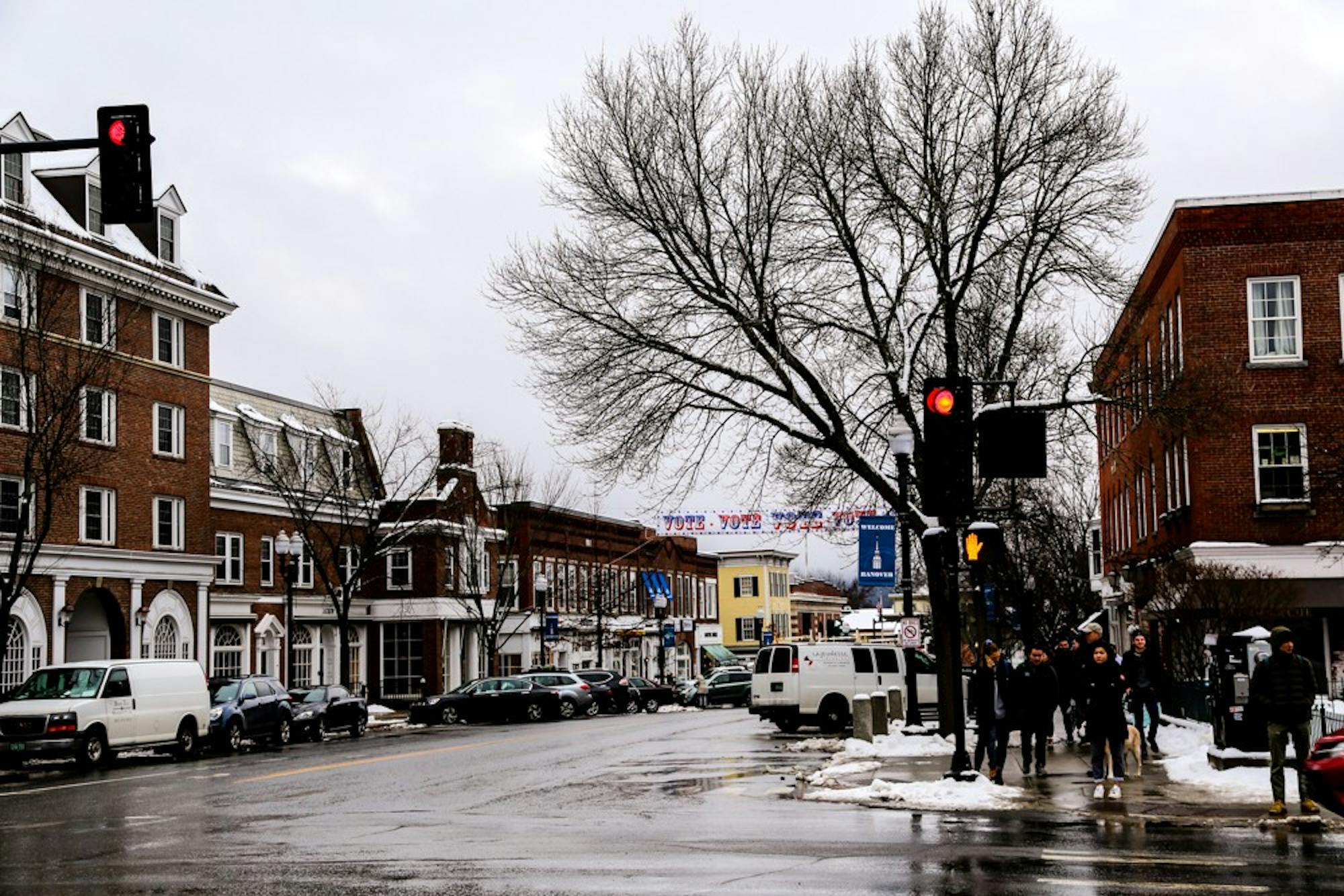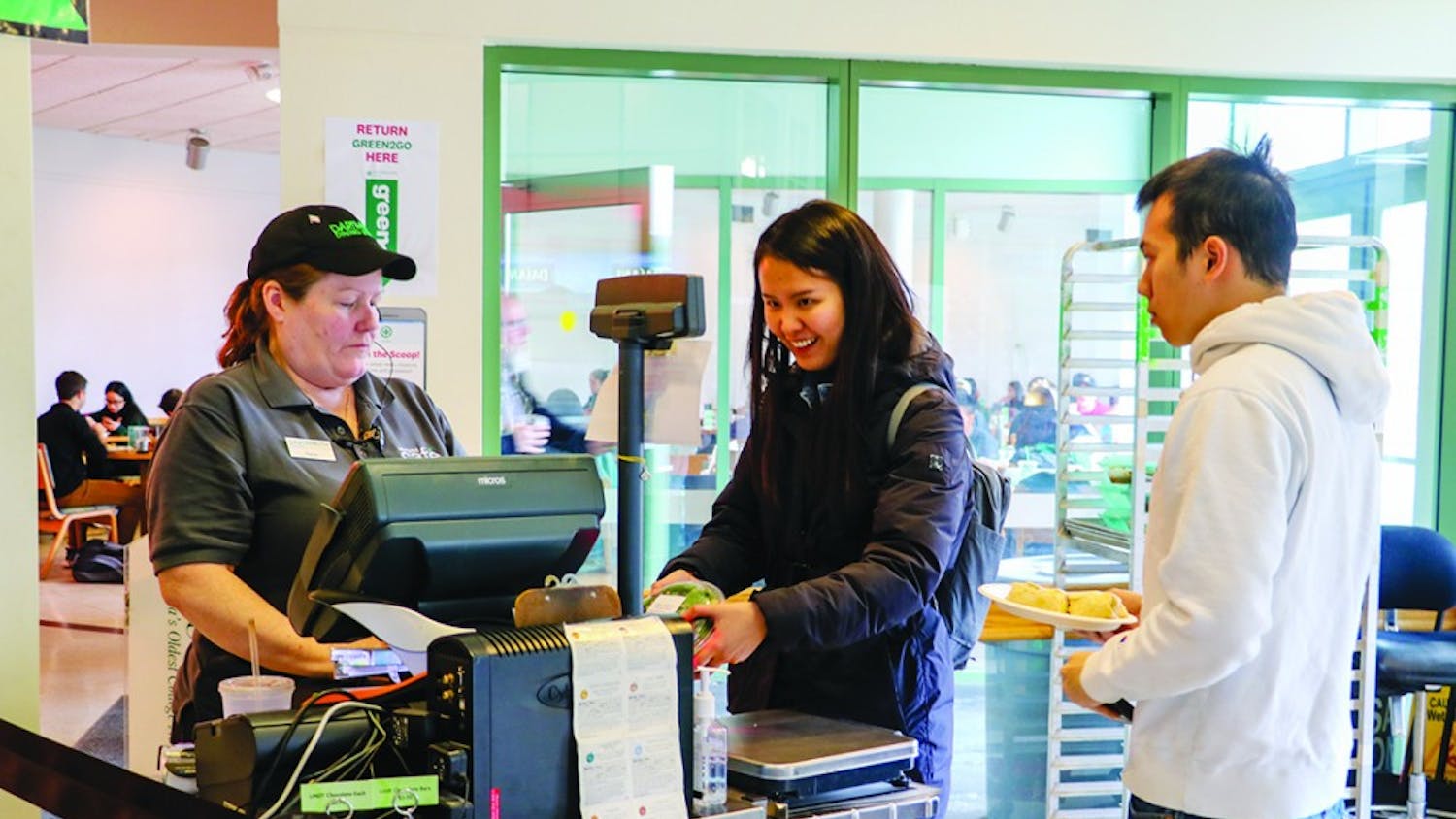Both the town of Hanover and the College administration have asked Dartmouth students renting off-campus housing not to return to Hanover this term. Nonetheless, some students are living in town, and many say it's their safest option.
On March 19, Dean of the College Kathryn Lively forwarded an email to students in off-campus housing from town manager Julia Griffin that read, “The town of Hanover would like to ask that no Dartmouth undergraduate students who are currently away from Hanover on spring break plan to return to live in Hanover during the spring term.”
“We do not want to add to our community’s challenges by reintroducing a large student population into our small community,” the email said.
Lively said she was concerned that students may behave in ways that could endanger the community.
“When you have a group of young adults living unsupervised, they may engage in behaviors that may put them at greater risk of contracting coronavirus than they would when they’re living at home,” Lively said.
Despite the warnings, various students remain in Hanover this term.
Griffin and Lively both said that they have heard about students in at least one off-campus house playing beer pong out in their driveway, presumably standing less than six feet apart from their partners — a claim confirmed by some students living in Hanover this term.
Elliot Ng ’21, who is currently living in Hanover, noted that he knew of a group of students who “rented a house specifically so they could come back and live together and play pong.”
Kevin Donohue ’21, who is also living off campus, said that he observed similar habits.
“When I go on walks around town, there is always this one house that I pass on Maple Street and there are people in the driveway playing pong — literally every time I pass it,” he said.
Lively expressed concern that as the weather gets warmer, more students spending the term in Hanover may want to be outside.
“Spring in New Hampshire is beautiful, and people love to be outside,” she said. “We’re asking people to do something that’s very difficult.”
Despite some students who are choosing not to observe town and College guidance, students also said many of their peers are adequately responding to Centers for Disease Control and Prevention guidelines.
“In general, I don’t blame people for thinking students can be reckless,” Donohue said. “[But] I would say students are also adults who can read the CDC guidelines and follow them,” adding that “by and large” students living off campus are following state and national guidelines and making “responsible” choices.
Cate Heisler ’20 echoed Donohue. “I think people are trying to be as safe as possible, at least within the circle of people I’ve been talking to throughout this process.”
Heisler said that students living off campus “who are doing the right thing” haven’t been contacted by the College or the town.
According to Griffin, most of the town’s communication with students is prompted by “a call or concern from a neighbor” observing behavior not compliant with COVID-19-related suggestions. She described these interactions as “knock and talks.”
“We knock on their door and have a conversation six feet away with a group of students we’ve heard complaints about,” Griffin said.
Heisler said that some students, like herself, have remained in Hanover for reasons that “weren’t heard” by the College, such as safety or the health of vulnerable family members back home.
“After talking to my parents about the home situation, we’ve decided it would be better to stay here rather than go home,” she said. “They got the virus pretty early. It was a very mild [case],” adding that “they are recovering well now.”
Similarly, Theodore Castellani ’23 said that if he had decided to return home, he would have had to travel through three airports, possibly exposing himself to COVID-19. He and his parents agreed it would be “easier and safer” to stay in Hanover.
Both Ng and Jamie Park ’20 reside outside the United States and are living off campus in Hanover to minimize housing costs. While they both noted that the College had allowed them to stay in on-campus housing for the term, they chose to live off campus because it was more affordable. They both added that they had lost their on-campus jobs.
Ng said that while he has remained on campus, he does not believe most students' reasons for staying on campus are justified.
“There are very few good reasons [for people to return],” Ng said. “I am very aware of the town asking students not to come back. I told some people to not come back and they still did.”
Other students said they wanted to be in Hanover for the term for peace of mind or to have fun.
Donohue, who said he returned to his off-campus rental before the administration’s messages to stay away, said he “felt really homesick for Dartmouth” because he had been away in the winter.
He said that he “didn’t want to spend the time at home” and added that it would be better for his “mental health and enjoyment” to return to Hanover.
Both Griffin and Lively expressed concern for the local non-student community.
Griffin noted the large population of senior citizens — who are more vulnerable to COVID-19 — in Hanover, including three nursing homes.
She also said that students not returning to campus will help to ensure the Dartmouth-Hitchcock Medical Center does not become overburdened as COVID-19 cases increase.
“It is the largest hospital in the state, and it serves a good chunk of Vermont. It’s likely to become a surge location as this virus starts to hit harder,” Griffin said.
Rent poses another dilemma for students who had to decide whether or not to return to campus. Some students, including Donohue and Heisler, said that they had already paid their rent for the term, which contributed to their decision to live in their off-campus housing.
While some landlords offered rent relief to students deciding not to return to campus, others did not, Griffin said.
“Shame on those landlords,” Griffin said. “They’re not supporting what [the town is] trying to do to keep this community healthy. I know that some of those landlords are very wealthy and can afford to make this accommodation.”
Jolin Kish, owner of KCC Properties Realty, Inc., which currently rents to 150 undergraduates and 200 graduate students, wrote in an email to The Dartmouth that “debts still need to be paid eventually.” She said that she is “offering payment plans” to people in need of extra time to meet financial commitments, but did not mention rent relief for students who decided not to return to campus.
Kish wrote that students who already signed leasing contracts should occupy their residences for summer term, but added that “[i]n several cases, we have been able to help tenants find subletters, as there are still people who need temporary housing in the Upper Valley.”
She said that when leases end at the end of August, KCC Properties will “evaluate” any savings due to the reduced use of their properties amid COVID-19 and “return some relief with security deposits for things like reduced water bills or unused trash removal services.”
When asked about potentially taking measures to enforce the College and town’s mandate that students do not spend the term in Hanover, Lively said the College hasn’t “gone down [that] road” yet.
“I’m not going to answer that question right now,” Lively said. “I would imagine that the College would support the town in trying to curb any behavior that they deemed to be a risk to public safety.”



